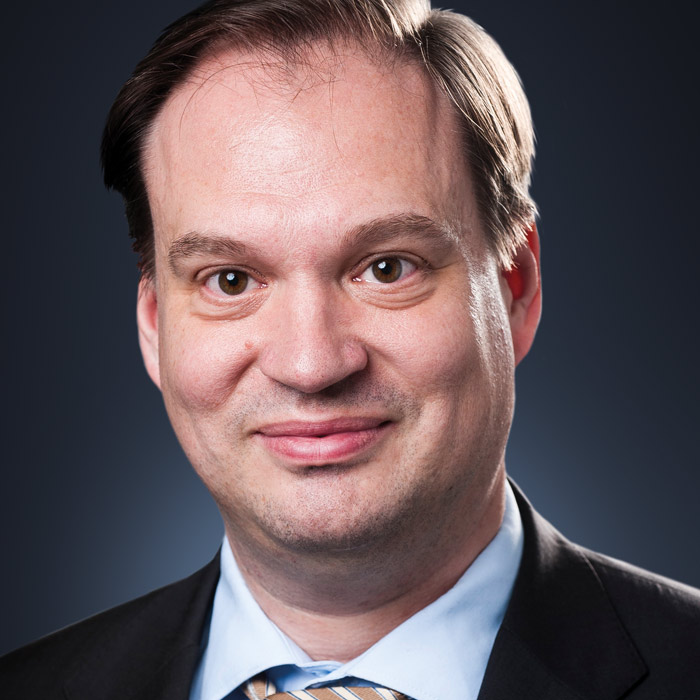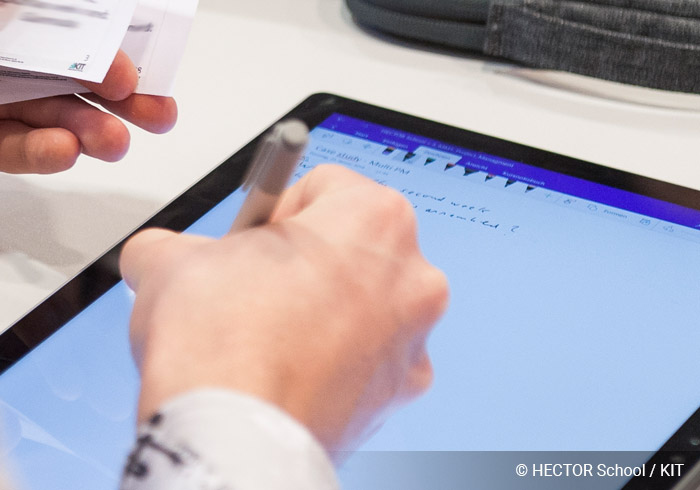Ralf Reussner is Vice Dean of the Faculty of Informatics since 2015, was Speaker of the Executive Board of the Research Center for Informatics (FZI) 2012-2017, and is Founder and Head of the Chair Dependability of Software-intensive Systems (DSiS) at KASTEL – Institute for Information Security and Dependability at KIT. He is a full professor of Software Engineering at the University of Karlsruhe since 2006. Professor Reussner is speaker of the Software Engineering Section of the German Computer Science Society (GI), member of the board of the “Fakultätstag Informatik”, was speaker of the DFG priority program “Design for Future”. As director of the FZI, he consults various companies on software architecture and software quality as well as on model-based systems engineering.
Tell us more about you and your research area:
What area are you working in?
My research is twofold: on the one hand I am working on the foundations of software design as an engineering discipline. This means that we develop methods to predict the quality of software even before its programed. This allows making architectural design decisions right in terms of supporting performance, scalability, reliability or security. Here, we import methods, such as model-based prediction, from “classical” engineering disciplines (like mechanical and electrical engineering) into software design. On the other hand, we want to research how software engineering methods can be applied in systems engineering in general. As software is playing a more dominant role in basically any modern technical product, we also see the chance and need to make their engineering methods more software-driven. So we look at algorithms allowing different experts to work seamlessly together without requiring that a single expert has the full understanding. Here methods from software engineering like distributed databases, software versioning, and formal methods are applied to models of non-software artifacts.
Which industries do you support with your research?
Generally, we support all industries building complex engineering artifacts. However, here in southwestern Germany, our partners are Daimler, but also tier one companies like Bosch (with ETAS and itk Engineering) and ZF. Vector informatics as a software tool provider for vehicle engineering is a natural cooperation partner.
Thinking about your research area and the influences on industry, environment, or the society, what are the risks/what are you worrying about?
“Software eats the world” as Marc Andressens said. That means that software realized business models more and more push other business models aside or even replace them. For our car industries, which are also so important for our societal welfare, this “software eats the world” means that they have to face the challenge that most value creation on cars is done by the software already now and this will even increase. In addition, the business model changes from solely making money through selling cars to making the most money with software updates on existing cars. Hence, they need to transform themselves into automotive software companies in order to survive the next decades.
Thinking about your research area and the influences on the industry, environment, or society, what are the opportunities and what makes you feel optimistic?
Digitalization is already now transforming our economy and society. We will lose classical jobs. In order to create new jobs here, we need highly skilled engineers with substantial software engineering knowledge. KIT and the HECTOR School within the International Department are doing a very good job of training such engineers. This gives me hope that new digitalization-induced jobs will be created here in Germany, in the southwest.
What are you particularly proud of? / Your greatest success:
The Palladio software architecture simulator initiated in a research project in 2003 is now a publicly available open-source tool used by several companies, once software quality (in particular performance) is an important success factor. Statements like “Palladio saved us millions of EURO” or “we now use it regularly in our development process” and academic awards from ACM, IEEE, and others for our research in our tool shows what is true for the whole KIT: academic excellence and practical impact can go very well together.
One Question – one Word-Answer
What is your favorite place in Karlsruhe/ or at the KIT?
The Richard-Willstätter-Allee. When moving from my office, for example, to the HECTOR School, I am always reminded how beautiful the environment and location of the campus is.
Which book did you read lately?
Well, I have the bad habit to read many several books concurrently, but one very nice selected: “Alles wird Zahl” from Thomas de Padova, about the introduction of our new normal mathematical place-value-system during the Renaissance in Italy and Germany and its impact on arts.
What is your favorite App?
Rain radar, to check whether I could start the barbeque in the evening.
One word for HECTOR School:
Essential for continuous learning at KIT and, by that, for the success of the digital transformation in our state.
Your favorite Tool for your work:
My head (thinking, listening, talking) :-).

Be the next Enabler

Our six M.Sc. programs combine cutting-edge technology and management expertise. Designed in close cooperation with the industry, they are a perfect match for ambitious engineers, computer scientists, and economists.
Read more


